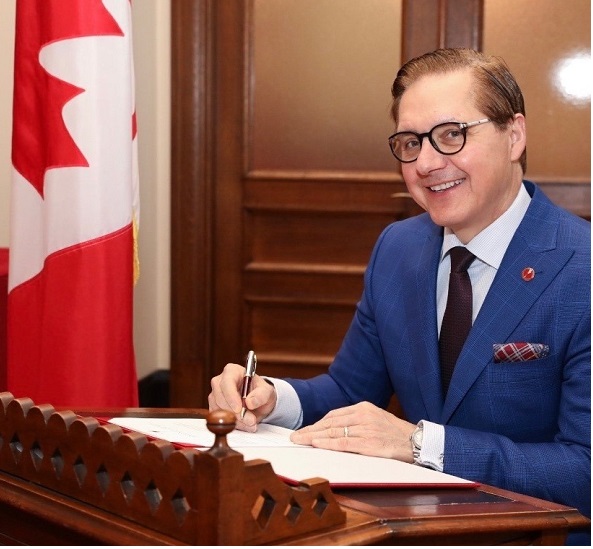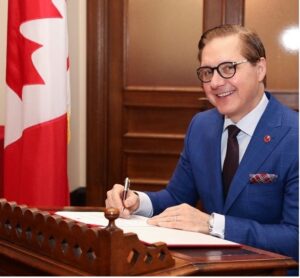How Can We Save Billions of Dollars of Taxpayers’ Money? By Making Our Bureaucracy More Productive and Efficient
Senator Loffreda writes about the need for the government to trim its expenses with respect to the Public Service and find ways of making the federal bureaucracy more productive and efficient in the delivery of its services and programs to Canadians. He stresses the need for Parliamentarians to hold the government accountable for its spending plans.
Earlier this month, the new President of the Treasury Board, Minister Anand, asked her cabinet colleagues to find fifteen billion dollars in savings from now until 2028 in their respective departmental budgets. In other words, she told them to make their departments more efficient and productive.
It’s a big ask, but it’s one that is timely and needed when you consider that government spending has increased considerably in recent years (above and beyond Covid-related expenses and emergency benefits).
In fact, the government had already previously announced a strategic policy review, led by the President of the Treasury Board, in the hopes of finding $6 billion in savings. When first announced in 2022, the government reiterated its commitment on managing public finances in a prudent and responsible manner in a way that Canadians’ tax dollars are being used effectively and to ensure that government programs are delivering the intended results.
A few months ago, at one of our National Finance Committee meetings, I asked the then-minister responsible to provide us with an update on the review. I wondered how the Treasury Board is properly assessing the efficiency of government services pre- and post-pandemic and how it evaluates improvements in terms of service delivery. Minister Fortier at the time stressed that departments are working hard on trying to find ways to be more creative in their efforts in delivering services to Canadians. As she put it, it’s about trying to be a smarter government, not a smaller government.
When I asked the Assistant Secretary in the Expenditure Management Sector how the government will achieve all these billions of dollars in savings without cutting personnel, she explained that they hope to initially find half a billion dollars in savings by reducing professional services and travel in 2023-24 alone.
I was also happy to hear the minister say that they are gathering data points on productivity. This is an issue I have often raised, including in an op-ed I penned last year in which I argued that Canada has a productivity deficit, and we need to grow our productivity in order to work more efficiently and smarter. This must be applied in the broader Canadian economy, but the government must also focus on productivity growth within the bureaucracy as well.
We know, for instance, that the number of public servants has expanded in the last decade. The Parliamentary Budget Officer (PBO) recently reported that the size of the bureaucracy has increased by almost 78,000 full-time equivalents since 2006, an increase of 23.2%. Over the past two years, the Public Service added over 31,000 new jobs, much of this expansion was prompted by the pandemic. He advances that personnel spending in 2021-22 reached $60.7 billion which represents the largest cost of the government’s day-to-day operating budget.
According to the government’s Main Estimates for 2023-24, which does not include future expenditures that will be included in the three supplementary estimates, the government projects nearly $433 billion dollars in spending. In ten years, this amount has nearly doubled from $235 billion in 2014-15.
By no means am I being critical of these expenditures. I have voted in favour of all appropriation bills that have come before the Senate since my appointment. Rather, I would argue that it is because of these budgetary spending increases that Parliamentarians must carefully review government spending along with departmental plans and results reports to make sure Canadians get more bang for their buck.
As such, the work of our National Finance Committee is more relevant than ever and increasingly more crucial. Our committee has an important oversight role in ensuring federal spending plans are reasonable, provide value-for-money, and achieve their objectives. In the current calendar year, 16 of our 26 meetings have focused exclusively on the government’s estimates where we study the appropriation needs for each federal organization and review expenditures (big or small) and strategic outcomes and programs.
My colleagues and I are committed to ensuring departments work within their budgetary means and become more efficient, productive, and innovative. We also want to make sure the Public Service meets and surpasses the targets it sets for itself in terms of service delivery, performance and outcomes.
In fact, according to the PBO’s research, between 2018 and 2022, departments have been unable to meet their annual targets, on average, a quarter of the time. Therefore, it is critically important that the National Finance Committee fulfill its mandate, as our chair always says, in holding the government accountable for its spending, while ensuring transparency, predictability and reliability for Canadians. I look forward to continuing our work, on behalf of Canadians, next month in Ottawa.
The Honourable Tony Loffreda – Independent Canadian Senator (Québec)




